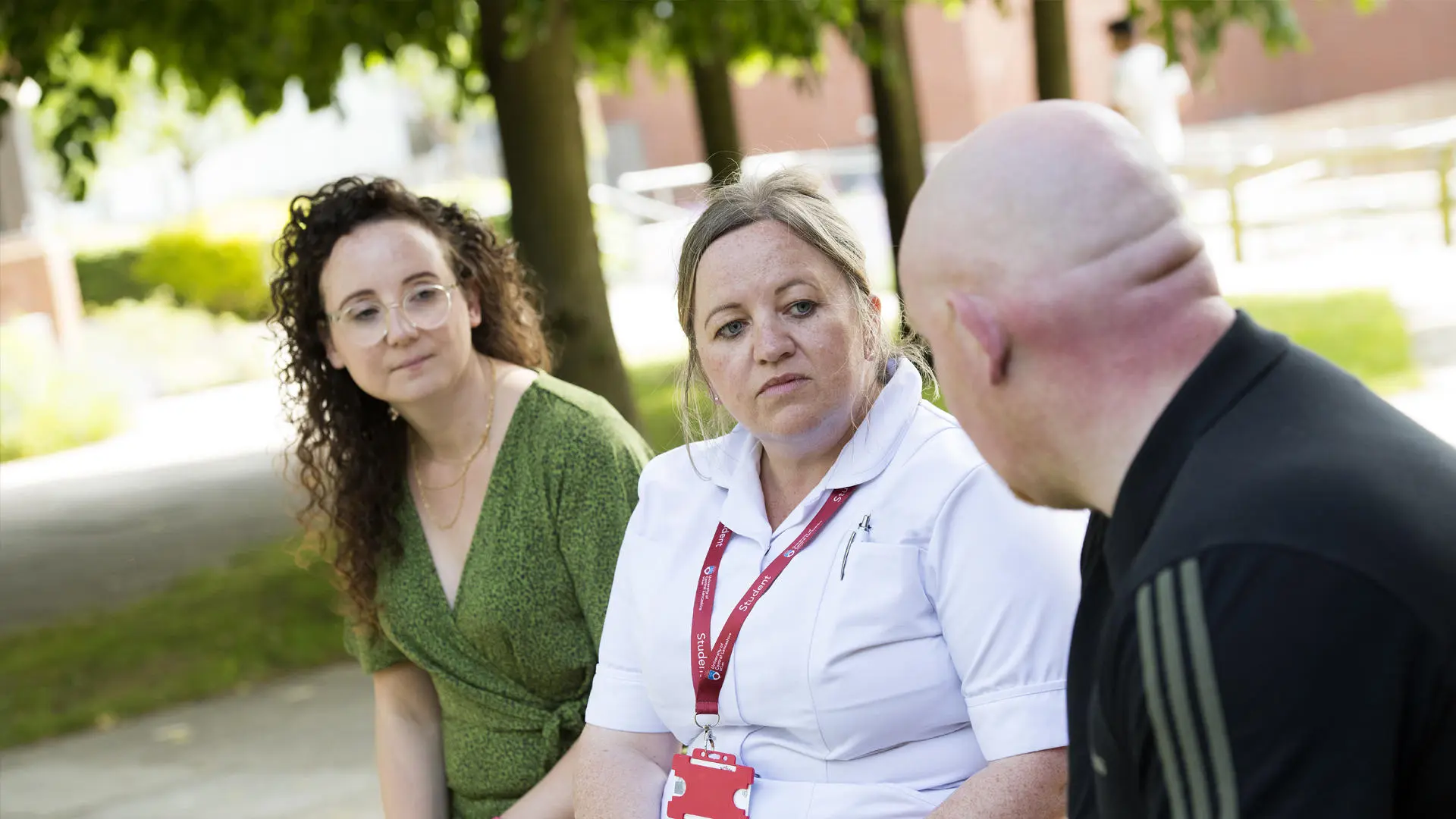Stroke Research Team
The Stroke Research Team is the UK's only nurse-led stroke research team. This prolific and experienced multi-disciplinary team of researchers, led by Professor Caroline Watkins, delivers programmatic pure and applied research across several domains.

The team has a national and growing international, stroke research profile. Not only is the team increasing the evidence-base for stroke care, but it is also facilitating the implementation of research evidence into practice.
The team is committed to increasing understanding of research, and NHS research capability, and this is apparent from the number of clinicians participating in research training and postgraduate degrees.
The extensive portfolio of primary and secondary research spans the five main areas of stroke care (acute, long-term care, prevention, rehabilitation, and workforce development).
A key tenet is to not just understand what must be done, but how it can be implemented – practically: by fostering clinical engagement and understanding service models and the context of care delivery; and theoretically: by appreciating behaviour change from an individual, and organisational, perspective.
Evidence of the former is apparent through involvement at a local level - in development of clinical (North West Stroke Task Force) and research (Local Research Network for Stroke) networks - and at a national level (Department of Health National Stroke Strategy and Stroke Research Network Clinical Study Groups).
This research group contributes to the cross-disciplinary research sub-theme Evidence for Societal Change.
We were awarded a large prestigious programme grant (> £1 million) from the Department of Health, National Institute for Health Research, which allows the development of emergency stroke pathways, raising the profile of stroke as a medical emergency, whilst establishing an evidence-base for acute care.
Programmatic research is also being developed, and an evidence-base pursued stroke rehabilitation. For example, the team has an emergent international reputation for exploring the psychosocial impact of stroke, this is evidenced by ground-breaking research demonstrating, for the first time, that a talk-based therapy (motivational interviewing) could prevent and treat depression post-stroke, and also protect against death. The results are being incorporated into a systematic review of studies on the prevention of depression, and an application for multi-centre trials with colleagues in Australia.
The team has developed innovative mechanisms for delivering and evaluating community dissemination of key stroke-related public health messages involving people with stroke, and their families across a range of communities, including minority ethnic groups.
Building on success in involving users and carers in all research processes, the team is expanding its expertise in systematic review, meta-analysis, assessment of organisational context, epidemiological and economic modelling to provide further evidence to support and inform implementation.
The current portfolio of research is supported by a robust platform of developmental research work. Information gained from systematic reviews, economic modelling and substantial comprehensive pilot, feasibility, and single-centre research is informing protocols for large multi-centre studies. Multi-centre trials will be facilitated by NHS and academic partners working in partnership. We will not only undertake collaborative research, but by taking account of, and understanding, organisational context and user perspectives, will ensure that results are translated into real benefits for patients and their carers, as well as the health and social care system.
We publish high quality research in peer-reviewed international academic journals. Our research output also includes presentations nationally and internationally at peer-reviewed conferences and clinical meetings. We work closely with academics, clinicians, and Department of Health representatives and have contributed towards the development and implementation of the National Stroke Strategy (2007) and the National Clinical Guideline for Stroke (2012), through service development, audit and research.
We have led the development of the Stroke-Specific Education Framework which will provide a quality assurance framework for education and training, as well as providing staff with tools to understand their existing stroke-specialist knowledge and skills, and their training needs. Improving the standardisation of care and implementation of existing research evidence will not only improve the quality of care, but provide a robust base from which research evidence can be generated. Furthermore, our programmatic research, on topics of key concern to patients and carers, will further improve care. For example, our NIHR funded ESCORTT programme has provided world-class evidence which will enhance recognition of stroke at a very early stage, facilitating emergency access to stroke specialists and life-saving stroke treatments. Our research on supporting psychological adjustment post-stroke, the first study to demonstrate the substantial benefits for well-being and survival, of a talk-based therapy, Motivational Interviewing, has received international recognition with in excess of 100 million people accessing the journal article reporting the ground breaking results.
Caroline has been chosen as a Senior Investigator for the National Institute for Health Research (NIHR).
- LINCS: Lancashire Initiative for Nursing and Caring research in Stroke
- ASTUTE: Acute Stroke Telemedicine: Utility, Training and Evaluation
- ESCORTT: Emergency Stroke Calls: Obtaining Rapid Telephone Triage
- Development of a competency-based inter-professional consensus on the identification and management of swallowing difficulties (dysphagia)
- Development of a robust, valid and reliable swallow screening tool for nurses to use with stroke patients
